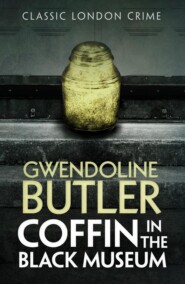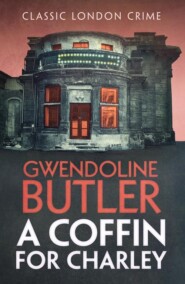По всем вопросам обращайтесь на: info@litportal.ru
(©) 2003-2024.
✖
The Red Staircase
Автор
Год написания книги
2018
Настройки чтения
Размер шрифта
Высота строк
Поля
It is then that I had taken myself off to Edinburgh to study medicine at the university there. It was in my heart to persevere, but the money would not run to it in the end. So I stopped. But as with all human actions, there were many reasons for my starting in medicine and many for my giving up. I can see that now.
‘I hope you’ll like the army,’ repeated Grizel, as if I hadn’t already said that I intended to. ‘Tibby says that it will trim the rough corners off you.’
‘Always supposing I want them trimmed.’
‘Oh, she never said it was a good thing. She likes those rough corners and so do I. When you are sharp and speak your mind, and when you stick out for your own way, I like you for it and so does she. She just said it would happen, that’s all.’
‘It sounds a painful process,’ I observed. ‘However, I shall be in the way to find out next week when I visit Patrick in Woolwich to see the house he’s chosen for us to live in. I’m staying with his cousin, and from the sound of her she’s enough to trim anyone’s edges.’
‘A regular dragon? Ach, you’ll get the better of her. Trust you for it, Rose. Here, give me your hand. Let me tell your fortune.’
‘You’ve done it once this week,’ I said, reluctantly offering up my right hand. ‘Surely it can’t have changed.’
Palmistry was Grizel’s new toy. In the crowded attics of Jordansjoy, among the dusty furniture and old travelling trunks (we had been searching for a reasonably smart set of bags for me, as a matter of fact), she had found an ancient book on fortune-telling; ‘The Book of Fate, formerly in the possession of Napoleon, Emperor of France,’ it was called. To the study of this book and the telling of our hands according to the rules laid down therein, Grizel was devoting most of her leisure, as well as a lot of time that should have been spent on other things. Or so Tibby said. Tibby called it necromancy and hinted that it was an abomination according to John Knox. I noticed that she listened with the rest of us, though.
‘You never know. We had a thunderstorm on Tuesday. Perhaps that was a portent of change. We hardly ever get thunderstorms here, so it must mean something.’ And she bent her head over my hand, busily tracing out the lines of head, heart and destiny.
‘I see a double tragedy, but great bravery,’ she announced with some triumph. ‘And a great love.’
‘Oh nonsense.’ I tried to pull my hand away, but she hung on.
‘And happiness,’ she said in tones of slight surprise, as well she might seeing what else she had predicted. Earlier she had foreseen disaster by fire for me. ‘And great possessions. Riches, in fact.’
‘I find that hard to believe.’
‘It is a bit of a staggerer,’ she said, dropping my hand. ‘Perhaps I got it wrong. It was rather hard to read. Your line wobbles a bit just there, owing to a blister you gave yourself with all that sewing on your travelling dress. But I seemed to see something extremely solid. Hard as a cannon-ball.’ She appeared to find satisfaction in this oracular judgement, for she closed my fingers over my palm as if this was the end of her forecasting for the day. ‘There, that’s enough. Aren’t you satisfied?’
Of course, she had no psychic gifts, it was all a game, but some games with some players can deliver hard balls.
In Woolwich the weather turned out to be hot and sultry; I was already tired by the long journey and now I felt, in addition, that my clothes were subtly wrong, too thick and clumsy. Thick silks and twills were out and soft chiffons were in, and no one had told me and I was aware of not looking my best. Perhaps Patrick thought so too, for he was bad-tempered and edgy. I bore this with fortitude, thinking that men are kittle cattle and need understanding. I behaved well, I think, and remained pleasant and good-humoured with him and made myself agreeable to my hostess, who was not a dragon at all but a woman of splintery charm and fly-away hair. And, of course, the owner of some of the prettiest and most fluttery chiffons I had ever seen. She told me they came from ‘Lucille’s’.
I minded the more because Patrick always looked right. He was not elegant or richly dressed, he couldn’t afford to be, but he was natural and happy in his clothes. I don’t suppose he ever wore scent in his life, but there was always an aura of freshness about him. Eyes, hair, skin, were shining. And yet, he was so easy with it. There never was a less stiff fellow than my darling Patrick with his soft, deep voice. At my bitterest times I tried to catalogue these physical attributes, and hate them, but I never could. The truth is I loved him by them and for them and through them.
Whether it was the heat or the fact that my clothes were wrong, I did not seem to be enjoying myself as I had expected. Woolwich was a restless place, with troops of soldiers always clattering through the streets. Patrick was preoccupied with his duties, not always free to be with me, although I felt he was doing his best. I was certainly seeing the workaday side of army life. And every so often the air was rent by the dull thud of artillery, as if we were under siege. I couldn’t always stop myself jumping, even though I knew they were only testing the guns.
The main purpose of my visit to Woolwich was to see the house that Patrick had rented for us, and the morning after our arrival he took me to inspect it – one of an elegant terrace built in the middle of the last century when Woolwich first began to expand because of the demands of the army. I looked out through what was going to be our drawing-room window at the statue erected in memory of the dead Prince Imperial, son to Napoleon III.
‘The furniture is ugly and shabby,’ I said. ‘A family called Dobson with six children had it last, did you say? It looks it.’
‘Is it dirty, then?’ said Patrick, looking around him with surprise.
I had concluded already that Mrs Dobson had not been much of a housekeeper, but with six children probably her mind was on other things. ‘So-so,’ I said. ‘It’ll clean.’ With an idle finger I traced my initials on the dusty windowpane. R. G. They may be there still for all I know.
‘We’ll get you a servant. You’ll need a cook, anyway. Can you cook, Rose? I wish I was a richer man, or would ever be. I’d give you all I could.’ He sounded strained.
‘But I’m quite content.’
‘Content? That’s not much of a word to get married on,’ said Patrick.
I swung round and stared at him. He was looking in my face as if there was some secret he knew and he wished to see if I knew it too. Instinctively I felt this, while I only stared dumbly back. There must have been something in my expression for him to read also, for he put his arm round my waist. He put his mouth on my lips and kissed me; I wanted to kiss him back, but just then I could not. I felt him stiffen. ‘Ah, Rose,’ he said sadly.
The twelve o’clock gun went off then at the Woolwich Arsenal and jerked us apart, and his cousin’s voice calling us from below saw to it that the separation was very nearly permanent. ‘I’m waiting, Patrick,’ she fluted up the stairs in that light, high, English voice of hers. ‘We mustn’t keep Miss Gordon waiting.’ Old Miss Gordon, General Gordon’s sister, lived next door and would be an important neighbour with plenty of influence in Army circles.
Silently Patrick and I went downstairs together. Mrs Lucas, his cousin, looked up at us curiously from under her floppy Leghorn straw hat, but she said nothing.
Patrick saw me off at King’s Cross station on my return journey to Scotland the next evening. ‘There’s some business must bring me to Edinburgh soon,’ he announced abruptly. ‘So I’ll be out to Jordansjoy to see you. I’ll give you advance warning if I can.’
‘Before the wedding?’ We were to be married within the month. Everything was supposed to be in train. I was surprised, but delighted, that Patrick had the time.
‘Before the wedding.’
‘I’ll see you then.’
I was going to say more but he kissed my cheek, gave me a wave and strode away, tall and erect, through the crowd. I watched him go. I remember that a phrase from a poem I had read somewhere flashed through my mind: ‘Too dear for my possessing’.
I went back to Scotland, conscious that some sweetness, some freshness in our relationship had spent itself and would never be replaced.
In those days the night journey from London to Scotland was noisy and tiring, but it had the one advantage that the train stopped at the station for Jordansjoy, where I was glad to see Grizel and Alec waiting for me in a governess cart pulled by the pony from the Manse.
I was always happy to see my home again. Jordansjoy was the shell of a once great house. The castle was in ruins, a romantic and beautiful wreck which had inspired Sir Walter Scott to a well known effusion. The grand mansion, erected by an early Gowrie in 1790 and decorated in the finest neoHellenistic taste of the period, had proved impossible to heat or live in, especially as the family fortunes fell away. For the last generation the Gowries had lived in eight or nine rooms in the stable wing, which was in fact a remarkably beautiful quadrangle of stone buildings, our ancestor having demanded a high standard of living for his horses. We, of course, kept none. Behind the shuttered windows of the mansion lay rooms full of mouldering hangings and worm-eaten furniture, anything of any value having been sold long since.
Tibby took a sharp look at me as I came in. Not much missed her eyes, and I have no doubt she read my mood. ‘Come away in and get your breakfast,’ she said. ‘And after you’ve eaten you can take a rest. Grizel, put a hot-water bottle in your sister’s bed.’
‘I’m not cold,’ I protested, although it was true that my native air did seem fresh and eager after sultry London.
‘Oh, it’s a cosy thing, a bottle,’ said Grizel, dancing away. ‘You can take it out when you get in.’
Tibby poured me tea and took a cup herself. ‘You’ll need to go down and see Mrs Graham when you’ve had your rest,’ she said. ‘She’s been sending up messages for you. Anxious to know the news of Patrick, I suppose.’
‘I’ll go down this afternoon,’ I said wearily. ‘Patrick sent her a letter and a book: a life of Lord Salisbury, I think. She reads a lot of memoirs, you know.’
‘Tired of life, poor thing,’ said Tibby briskly. ‘That’s what she must be, to spend her days reading of what’s done.’
I went to see Mrs Graham next day, and we talked about my visit to London and about Patrick, whom she adored. She was a gentle, delicate woman in increasingly frail health, but she was always good to me. Just as I was leaving, a boy arrived with a telegram for her.
She read it without comment, and then handed it to me. ‘From Patrick.’
I took it and read: ‘Arriving Thursday morning. Staying one night. Do not meet the train.’ I looked up and met Alethea Graham’s eyes.
‘He’ll come to you before he comes home. That’s what the telegram means,’ she said.
I nodded, full of a disquiet I could not explain.
Patrick and I had met at a ball at Holyrood House, to which I had been taken by old Lady Macalister, who had been my grandmother’s friend. She introduced me to Patrick and we had the supper dance together, and then the dance after, and by the end of the evening I, at least, was in love.
We had many meetings in the weeks that followed, while Patrick had leave. Little meetings, I called them in my own mind, because we were never alone, being either in his mother’s company or that of other young people. But we seemed to grow closer at each meeting, and although several people took it upon them to remind me what a bad gambler Colonel Graham had been and how there might be something in heredity, I was not daunted. No doubt Patrick’s friends were telling him the worst they knew of my family, and how the Gowries had always been chancy, impecunious folk. ‘Good looks and bare acres,’ was the phrase around here. But Patrick and I seemed to prosper, and when he asked me to marry him on the last day of his leave, I accepted at once. It was romantic, it was right. I never had a moment’s doubt.
The spot where we became engaged was the Orangery at Lady Macalister’s place near Jordansjoy, and the occasion her annual garden party when she ‘worked off, as we used to say, all the hospitality she owed. The air in the Orangery was sweet and warm, outside in the garden a band was playing a waltz from ‘The Balkan Princess.’ It is a mistake, I’m sure, to think that men don’t succumb to the romance of an occasion as easily as women. I am convinced now that Patrick was powerfully affected by the sweetness of our surroundings, following upon the happy sequence of our meetings, and by a sense of what was somehow appropriate and expected.











